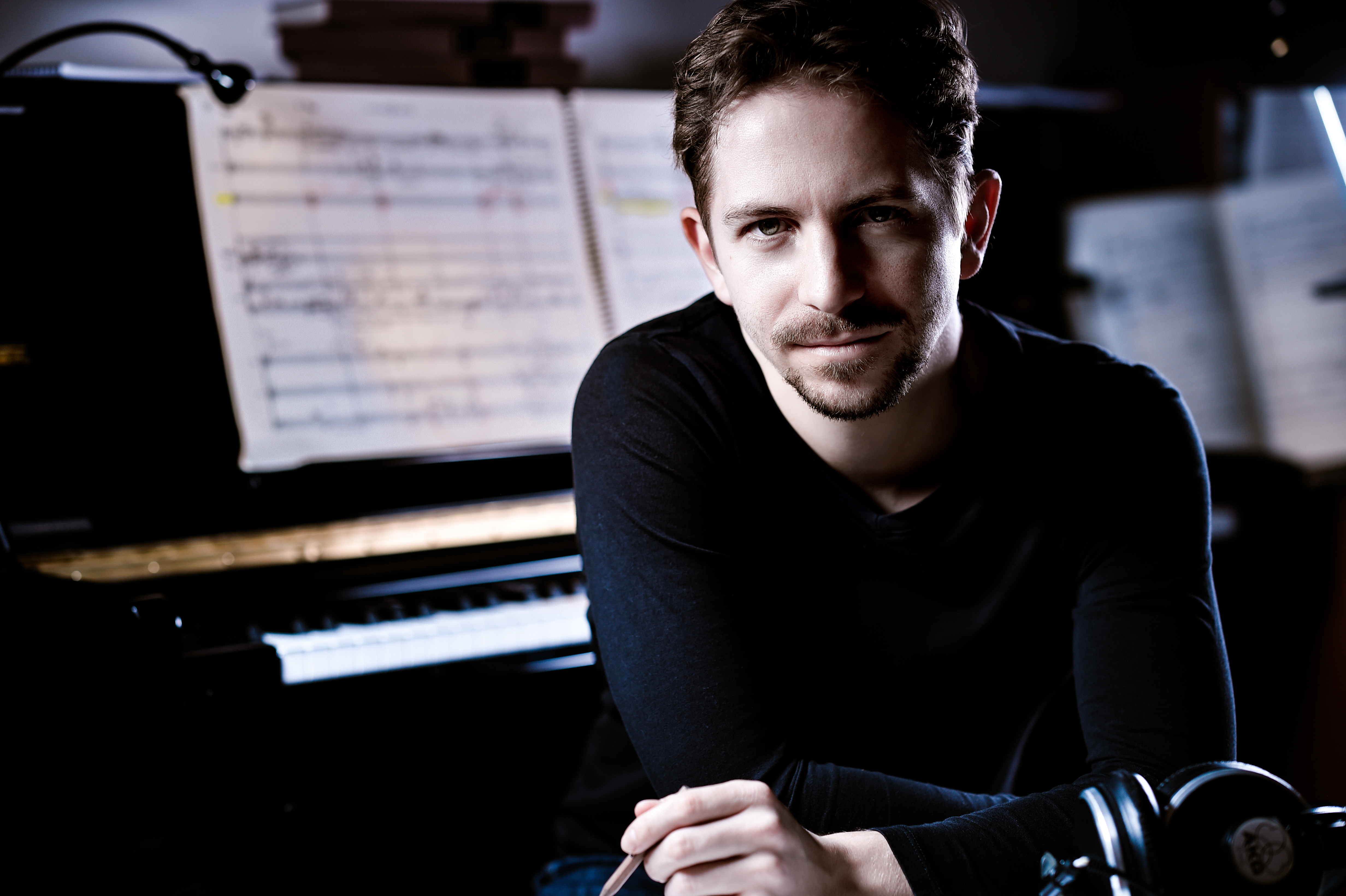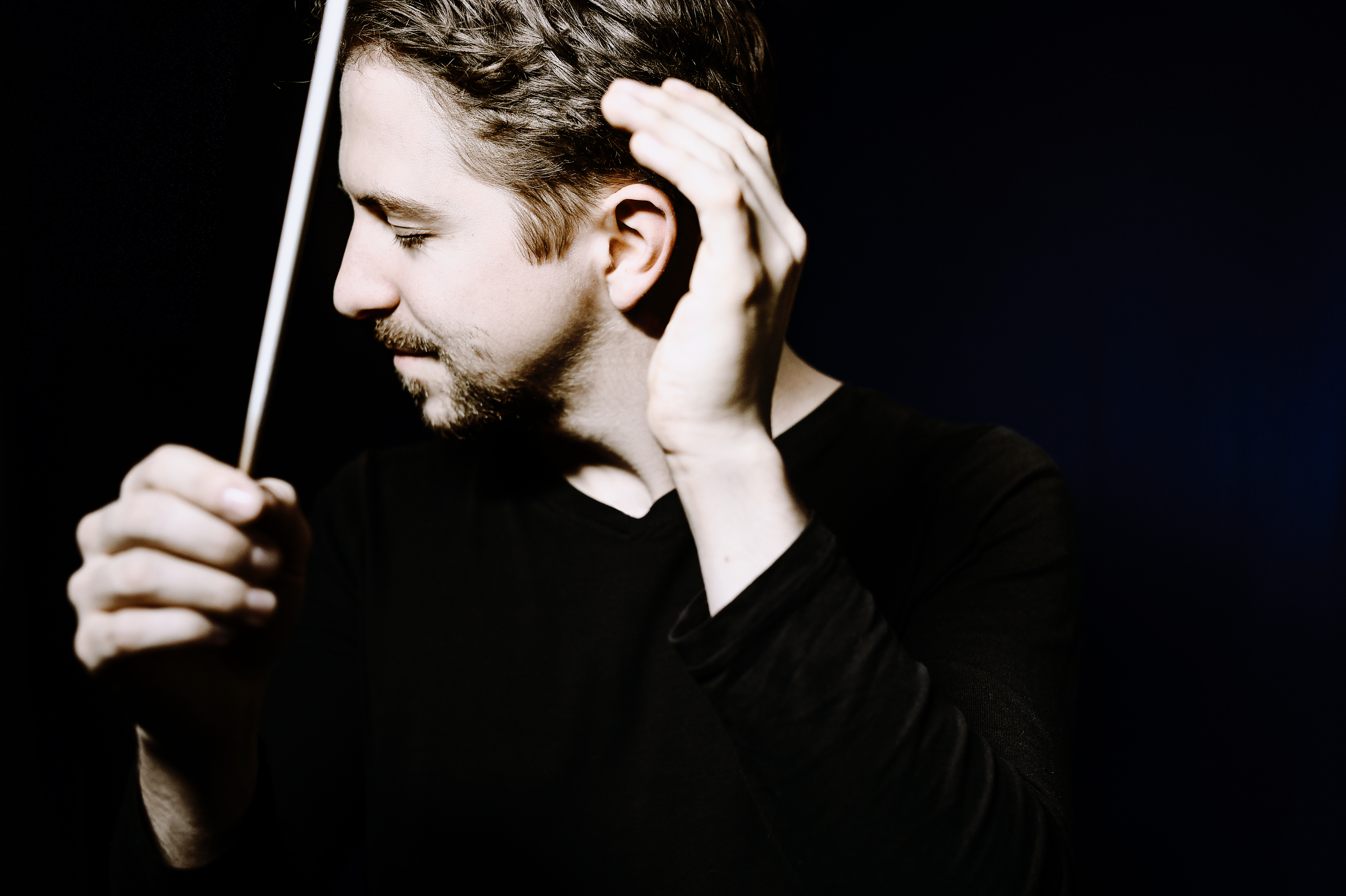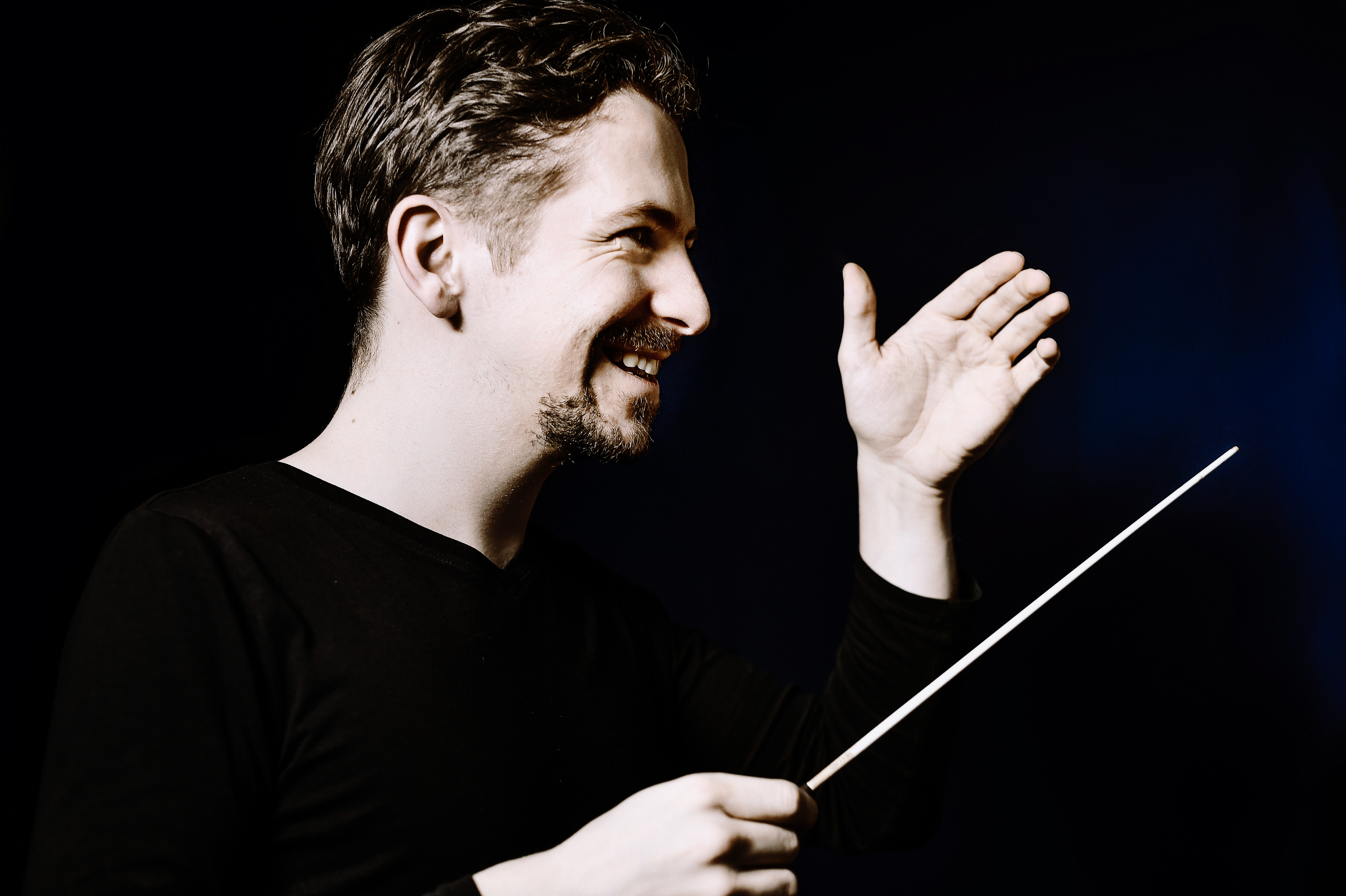1 part by 35 minutes; 2 part by 50 minutes
Рrogramme:
I PartMayrhofer
Insect Concerto
Version for violin and orchestra
Britten
Four “Sea Interludes”
the opera “Peter Grimes”,
for symphony orchestra, op. 33a
“Dawn”II Part
“Sunday Morning”
“Moonlight”
“Storm”
Dvořák
The Symphony No. 9 in E minor,
“From the New World”, Op. 95, B. 178
Adagio – Allegro moltoThe programme is subject to change
Largo
Molto vivace
Allegro con fuoco
The Season Opening
musicAeterna Orchestra
Conductor – Gregor Mayrhofer
Mayrhofer has conducted the orchestra of the Bavarian State Opera, SWR Symphony Orchestra, Munich Chamber Orchestra, Munich Symphony Orchestra, Lucerne Festival Academy Orchestra, Staatsphilharmonie Rheinland-Pfalz, Württembergische Philharmonie Reutlingen, Belgrade Philharmonic and Slovenian Philharmonic Orchestra. He has worked with ensembles such as Ascolta, the Ensemble Intercontemporain, Ensemble Modern Academy, Ensemble Nostri Temporis Kiev, Ensemble Proton Bern, Hong Kong New Music Ensemble and the Scharoun Ensemble of the Berliner Philharmoniker, as well as with soloists such as Patricia Kopatchinskaja, Georg Nigl and Daniil Trifonov.
He assisted Sir Simon Rattle at the Festival Aix-en-Provence for a production of Tristan with the London Symphony Orchestra and assisted Kirill Petrenko, Teodor Currentzis, Michael Boder at the Vienna State Opera and Matthias Pintscher at the Berlin State Opera „Unter den Linden“ . In the years 2015-2017 he was assistant conductor of the Ensemble Intercontemporain with whom he made his debut at the Philharmonie de Paris in 2016, standing in at short notice for Pablo Heras-Casado. In 2017, Mayrhofer conducted premiere performances of his commission for the Ensemble Intercontemporain in the Kölner Philharmonie.
As a composer Mayrhofer has received commissions from the Bavarian State Opera, Bayerischer Rundfunk (Bavarian Radio), Biennale Munich, Deutsche Oper Berlin, the Ensemble Intercontemporain, State Opera Hanover, the Scharoun Ensemble of the Berliner Philharmoniker and the Tyrolean Festival Erl. The last couple of years have seen premiers of his children’s opera Die Drei Spinnerinnen (The Three Spinners, 2018), his Insect Concerto (2018) with the Academy of the Berliner Philharmoniker and the Lageder Oktett (2017) with the Scharoun Ensemble.
He regularly performs as a pianist in jazz concerts with his brother Raphael as part of their duo Imbrothersation, first-prize-winner of Süddeutsche Zeitung‘s Tassilo Kultur Preis in 2009/2010.
Gregor A. Mayrhofer was born in Munich in 1987. He studied composition at the Hochschule für Musik und Theater München (with Jan Müller-Wieland), the Conservatoire National Supérieur de Musique Paris (with Frédéric Durieux) and at the Robert-Schumann-Hochschule Duesseldorf (composition with Manfred Trojahn and conducting with Rüdiger Bohn). In addition to Alan Gilbert, who oversaw his studies for a Master’s degree in conducting at New York’s Juilliard School, Mayrhofer has also studied with James Ross and received lessons from Bernard Haitink, Fabio Luisi and Johannes Schläfli.
Furthermore, he assisted Peter Eötvös, Iván Fischer, Daniel Harding, Susanna Mälkki, François-Xavier Roth, Marc Minkowski, Andris Nelsons, Sir George Benjamin, Gustavo Dudamel, Paavo Järvi, Andrés Orozco- Estrada, Matthias Pintscher as well as Sir Simon Rattle.
Among many prizes and scholarships, Gregor A. Mayrhofer has been awarded with the Bavarian Art Sponsorship, the Bruno Walter Memorial Scholarship and the Charles Schiff Conducting Award.
The MusicAeterna orchestra (with its associated choir) was founded by conductor Teodor Currentzis in 2004. Musicians from 12 countries and 20 cities are members of the ensemble, and its repertoire embraces both ancient and modern music, masterpieces and iconic pieces of 19-20th centuries, as well as daring experimental works by contemporary composers. Both Orchestra and Choir are constant participants of high-acclaimed international festivals, and perform at only best venues in Russia and abroad.
Since the fall of 2019, musicAeterna has status of independent music collective. Last December saw the opening of musicAeterna residency in St Petersburg House of Radio; it helps unite creative and educational programmes, as well as experimental and scholar projects that embrace different areas of contemporary art.
* * *
In his 10-minute long “Insect Concerto” Gregor Mayrhofer tries to mimic the buzzings that insects normally produce. It is his way to draw public attention to the problem of declining numbers of insects on the planet.
The daring piece was premiered in May 2018 at the Berliner Philharmonie. Several crickets were caught , put into terrarium, and amplified so that the musicians can play along with the “soloists”. However, the idea of using living insects was abandoned – it’s no good torturing animals for whose benefit the music was written – and the composer rearranged his concerto for traditional violin and orchestra.
In order to draw attention to the insect decline, the Berliner Philharmoniker perform together with very special guests: insects. The Insect Concerto is an original piece of music written by composer Gregor Mayrhofer for classical orchestra instruments and a choir of crickets.
“Four Sea Interludes” is a part of “Peter Grimes”, an opera by Benjamin Britten. The location of the opera is a fictional village which shares some similarities with Aldeburgh, a town on England's east coast. It was first performed at Sadler's Wells in London on 7 June 1945, and was the first of Britten's operas to be a critical and popular success. An English critic claimed that it was “the best English opera” since “Dido and Aeneas”, while Russian musicologist Konstantin Zenkin flattered it by comparison with Claude Debussy.
One of the most popular oeuvres of all times, Dvořák’s Symphony No. 9 in E minor, “From the New World”, is in the second part.




